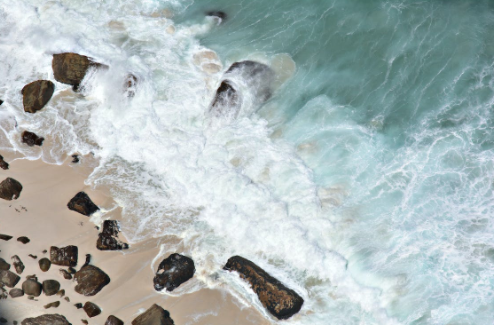The marine ecosystem is a delicate and complex system that supports life on Earth. Conservation of this vital resource is essential to ensure its sustainability for future generations. The importance of marine ecosystem conservation lies in the wide range of benefits it provides to humans, animals, and the environment.
For example, conserving marine habitats protects biodiversity and helps to maintain the balance of our oceans. A healthy and diverse marine ecosystem is essential for providing food, oxygen, and resources for humans. Marine biodiversity also helps to reduce pollution levels by filtering out harmful toxins from the water column.
Additionally, healthy marine ecosystems provide important recreational opportunities such as fishing and swimming which are vital sources of income in many coastal communities around the world. Conserving these ecosystems can help to keep local businesses and economies afloat, while also providing much-needed employment opportunities.
Furthermore, marine conservation is essential for mitigating climate change as it helps to protect coral reefs, which serve as a carbon sink that absorbs large amounts of carbon dioxide from the atmosphere. By protecting this vital resource, we can help to limit the amount of carbon dioxide in our atmosphere and thus, reduce the effects of global warming.
The Danger of Ignoring Marine Conservation
Without proper marine conservation efforts, the effects of climate change will be felt more acutely across our planet. Rising ocean levels will threaten coastal regions and lead to floods, while warmer temperatures can cause coral reefs to bleach and destabilise entire ecosystems.
Also, overfishing and illegal fishing practices have already caused irreparable damage to many species that are vital to the marine ecosystem. This can have adverse effects on other species in the food chain and damage aquatic habitats. In addition, poor water quality caused by pollution is a major factor in degrading the health of coastal areas, which could lead to disease outbreaks and loss of biodiversity.
Therefore, we must take action to conserve our ocean resources, as well as its wildlife. This can include enacting and enforcing stricter fishing regulations, passing laws that reduce water pollution and plastic waste, establishing marine protected areas, and supporting initiatives that help protect ocean life. We can also reduce our plastic consumption by avoiding single-use items, buying sustainable products, and finding creative ways to reuse and recycle plastics.
Ultimately, marine conservation is essential for the health of our planet. Not only do marine ecosystems provide us with food, energy and economic opportunities, but they also regulate our climate by absorbing carbon dioxide from the atmosphere. By protecting and restoring our oceans, we can help safeguard the planet for future generations and ensure that marine wildlife continues to thrive.
CSR projects in UAE that promote marine conservation can be a great way for local businesses and consumers to contribute to the health of our environment. Businesses can support organizations such as Emirates Marine Environment Group that work to protect our oceans and promote sustainable use of marine resources. Consumers can also get involved by buying sustainable seafood, joining beach clean-ups, and reducing their plastic use.
If you like to scuba dive, choose a company that supports local marine conservation efforts. You can make a difference by supporting dive centres that have adopted responsible and sustainable practices.
With the right actions, we can all make a difference!


